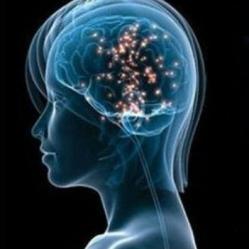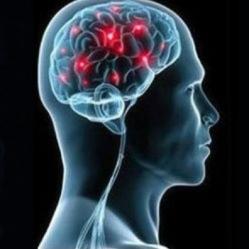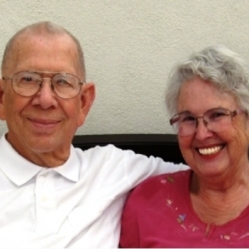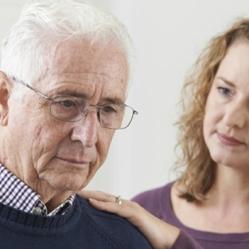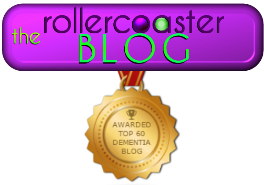
Preventative Measures
Causes of Problematic Behavior
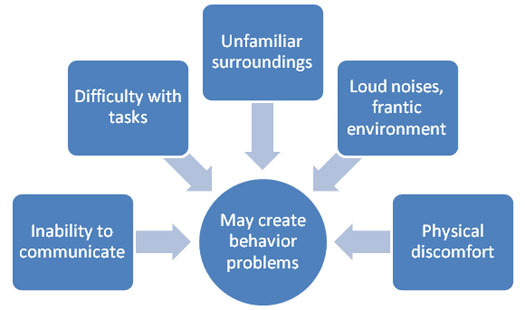
Preventative measures are a Responsive Care Partner can predict and remove or decrease before they become a problem:
- Environmental control
- Infection control
- Pain management
Graphic: helpguide.org
Environmental Control
The dementia environment in a care home, from Social Care Institute for Excellence
Environment control involves anything external, such as using schedules or placement of furniture or lighting. Some suggestions are:
- eliminate clutter
- reduce noise or other stimulation
- develop and follow regular routines and daily schedules
- provide cues to help with transitions. Ex: a lap blanket can signal nap time.
- use timers as reminders and to set limits
- use well known/loved items to maintain familiarity in unfamiliar places like motels or airplanes.
The Canadian Psychological Assn. puts out a fact sheet about Environmental Adaptions to Dementia [10]. You can also access this sheet from our LBD Reference page.
Infection control
Because Lewy bodies can compromise the immune system, infections are common. When present, Lewy body symptoms will usually increase.
In fact, an increase in these symptoms can be the first sign of an infection. Urinary tract infections are the most common, but so is pneumonia, as well as skin and GI tract infections.

To prevent infections, make sure a person with dementia:
- drinks plenty of water
- uses good personal hygiene
- avoids choking
- avoids pressure sores
- doesn't have any unusual skin itching, lesions or pain
Once an infection is present:
- It should be addressed medically. Treatment depends on the type of infection.
- Symptoms vary with the infection, but include fever over 101 degrees, chills, swollen red areas, obviously infected areas, nausea, abdominal pain or a sudden increase in Lewy body symptoms such as confusion.
- More: 8/23/13 Rollercoaster blog - LBD and Drugs - Part 5 - Lewy Safe Drugs
Pain Management
Teepa Snow talks about "How to Recognize Pain in Late Stage Dementia"
With age, arthritis and other painful illnesses become common. Decreasing this pain decreases stress. The first step is often to identify that your loved one isn't just being obnoxious or irritable, or even frustrated, but is actually in pain. They may not be able to tell you about it, or just as often, may not even realize that the pain is there...they just feel bad, and act it out. Ask specific questions using touch and hand gestures to help to identify where the pain might be.
Treatment:
Pain treatment can be difficult. Even identifying the presence of pain can be difficult.
- As a person loses the ability to think, they simply feel bad but not know why. Using gentle questions and pointing to different parts of the body can help.
- Dementia can impair language skills. A person may say the wrong word, or none at all. Watch the gestures and ask for more information.
- Pain may be delusional; real only to the person. Make sure this is the case, then consider placebos.
Pain decreases comfort and increases Lewy body symptoms, few pain drugs are recommended. Therefore, non-drug options should be tried first.
In any case, consider non-drug options first, before resorting to pain drugs.
Non-drug options
- Engagement skills, to identify issue, comfort and distract
- Alternative therapies, such as touch and massage
- Enhancing activities, such as music and humor to distract and calm
- Rehabitation therapy, to improve movement and strength and to find less painful ways of doing tasks.
- For more about non-drug options for pain, see the 4/29/16 Rollercoaster blog.
If non-drug options aren't enough
- Acetaminophen (Tylenol) is usually safe in small doses for short times.
- Rather than drugs like Advil and Aleve, which have side effects that can affect the GI tract and heart, some doctors recommend a very mild narcotic. However, narcotics tend to be constipating.
- Read more about pain drugs and LBD in the October 10/9, 16 and 30/2015 Rollercoaster blogs.
Relaxation Exercises:
Yoga, Meditation Help Dementia Patients and Their Caregivers, from Newsy Science
Relaxing the body relaxes the mind and lowers stress. These exercises can be very short, just a minute or so, or as long as an hour or more. Practicing the longer ones regularly makes it easier to do the quick ones when you need them: The list below is simply a sample of what's available.
- Deep breathing
- Meditation
- Yoga
- Guided relaxation
- Music for relaxing
Deep breathing
Deep breathing is a quick exercise that a person can stop and do when care partnering becomes stressful. It draws oxygen into the lungs and provides more fuel for the brain so that it can function better. Deep breathing is contagious! Take three deep breaths and your loved one or patient will be breathing along with you.
A good guide for deep breathing, from Rick Strawcutter, with an explanation of how to get more oxygen into your lungs.
Meditation.
How does meditation improve your focus? by ZenSmarts
Meditation is the process sitting quietly and clearing the mind. It can last from a few minutes to over an hour. It usually takes some practice to be able to calm down one's racing thoughts. Scientific trials have should that meditation will lower stress AND increase clarity of thought.
Guided relaxation
This is the process of following directions given by someone using a soft, relaxing voice.
The experience can take a variety of forms, from relaxing muscles to just thinking pleasant thoughts. It can last from 15 minutes to an hour. The Inner Health Studio offers several different kinds of free guided relaxation experiences.
Try several and find the one you or your loved one, or both of you, like best.

Music for Relaxing
3 Hours of Relaxing Music for Stress Relief. Meditation music for Yoga, Reiki, Zen, Spa, Study, from Meditation Relax Music.
Play the above music while mediating or doing yoga exercises, or just while sitting and relaxing.

A Special Caregiver's LBDtools.com Offer!
This is a $62.85 Value for $52.85
THAT'S A $10.00 SAVINGS!
The Caregivers Guide to Lewy Body Dementia by award winning authors Helen and James Whitworth is the first book to present a thorough picture of Lewy body dementia in everyday language.
Responsive Dementia Care: Fewer Behaviors, Fewer Drugs provides family and professional caregivers with tools for dealing with difficult dementia-related behaviors.
This trio pack is rounded out with the UPDATED Riding a Rollercoaster With Lewy Body Dementia, the Whitworth's manual for caregivers of LBD patients.
Our Site:
Copyright 2014 - 2016: The Whitworths of Arizona - www.lbdtools.com - All Rights Reserved
site design by:





